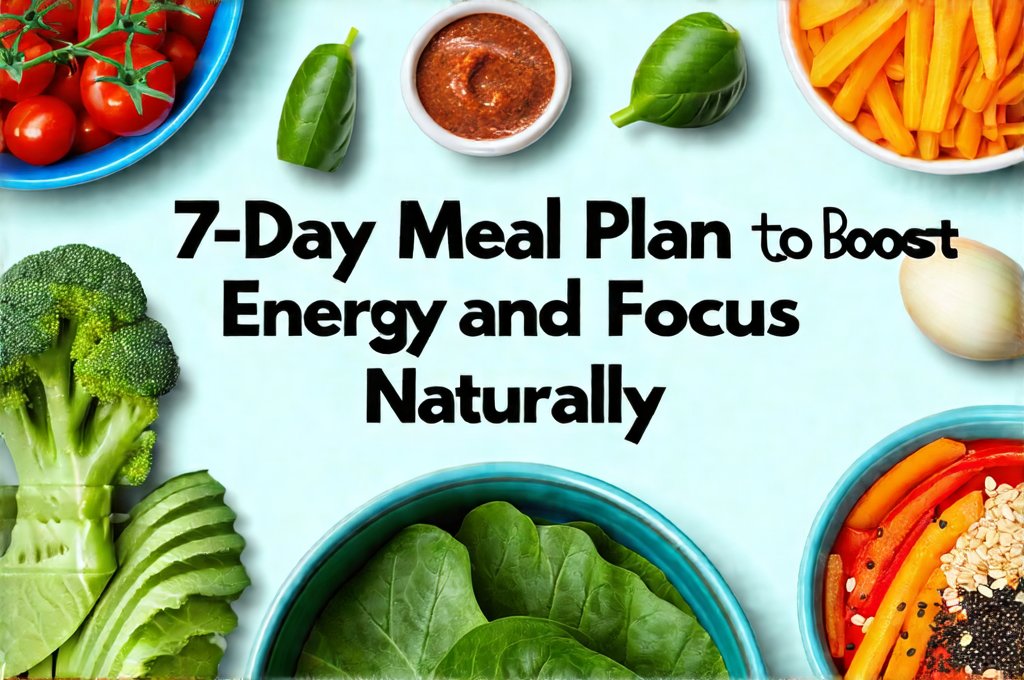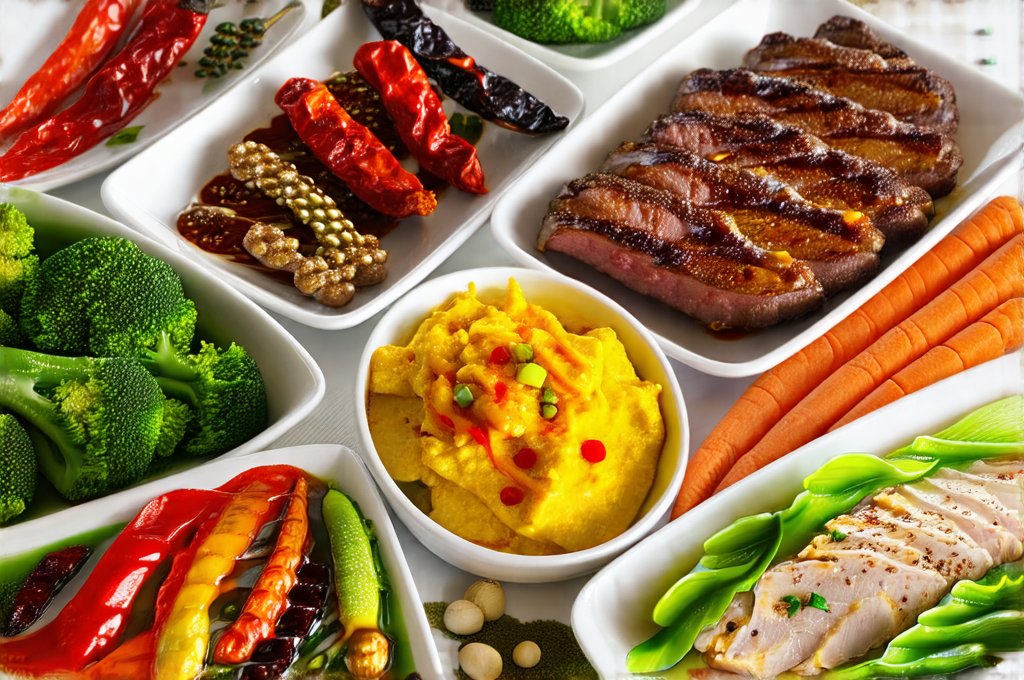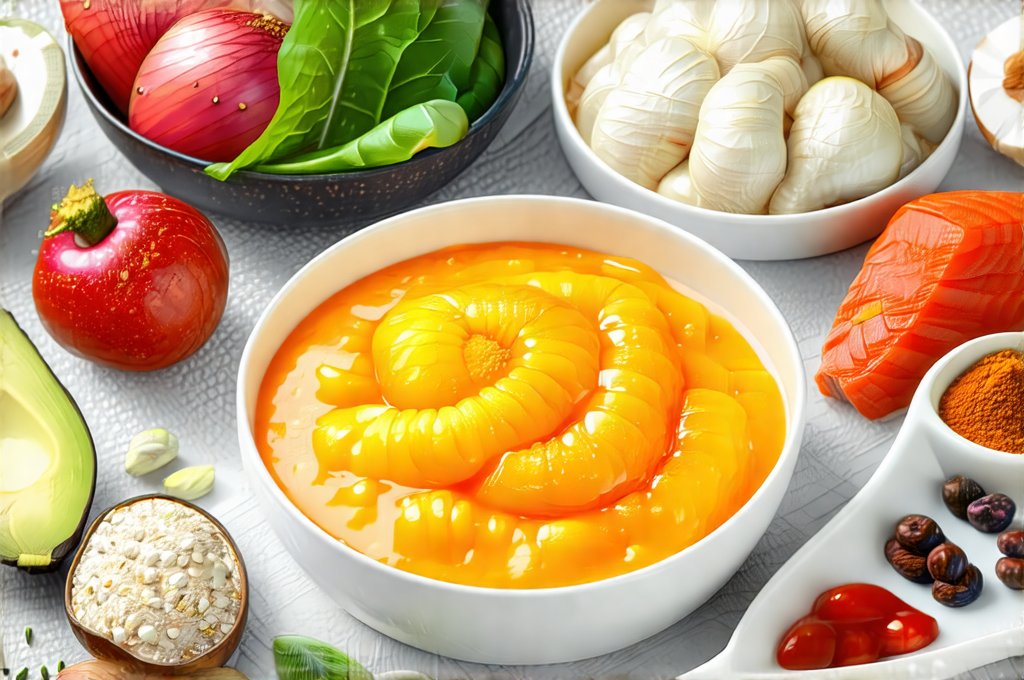Feeling sluggish, struggling to concentrate, or simply wishing you had more consistent energy throughout the day? In today’s fast-paced world, it’s easy to rely on quick fixes like caffeine or sugary snacks for a temporary boost. However, these often lead to crashes and don’t address the underlying causes of low energy and poor focus. The truth is, sustainable energy and mental clarity start with what you eat. A well-nourished body is a powerful engine, capable of tackling challenges with resilience and vitality. This article will provide a practical 7-day meal plan designed not just to eliminate those frustrating dips in energy but to cultivate lasting wellbeing through the power of whole foods and balanced nutrition.
This isn’t about restrictive dieting or deprivation. Instead, it’s about making mindful choices that support your brain and body. We’ll focus on incorporating foods rich in essential nutrients—complex carbohydrates for sustained energy, lean proteins for mental sharpness, healthy fats for brain function, and vitamins & minerals to optimize overall health. This plan is a starting point; feel free to adapt it based on your individual preferences and dietary needs. Remember that hydration is also paramount, so aim for at least eight glasses of water daily. The goal isn’t perfection but progress towards a more energized and focused you.
Understanding the Energy-Focus Connection
The link between nutrition and cognitive function is undeniable. Our brains are remarkably energy-intensive organs, consuming approximately 20% of our total daily caloric intake. What we feed our brains directly impacts their ability to perform optimally. Simple carbohydrates cause rapid spikes in blood sugar, leading to short bursts of energy followed by inevitable crashes—the dreaded “sugar rush” and subsequent slump. Conversely, complex carbohydrates provide a slow, steady release of glucose, offering sustained energy and improved concentration. Similarly, deficiencies in key nutrients like B vitamins, iron, and omega-3 fatty acids can significantly impair cognitive function and contribute to fatigue.
Furthermore, the gut microbiome plays a surprisingly large role in brain health. A healthy gut supports nutrient absorption, reduces inflammation, and even produces neurotransmitters that influence mood and cognition. Therefore, incorporating probiotic-rich foods like yogurt or kefir and fiber-rich foods that feed beneficial bacteria is crucial for both physical and mental wellbeing. The aim of this meal plan isn’t just to fuel the body but to nourish the brain and cultivate a thriving gut ecosystem.
A significant aspect often overlooked is consistent eating patterns. Skipping meals disrupts blood sugar levels, leading to energy fluctuations and impaired focus. Aiming for regular mealtimes—breakfast within an hour of waking, lunch around midday, and dinner several hours before bedtime—helps maintain stable glucose levels and supports optimal brain function throughout the day. This consistency minimizes cravings and prevents overeating, further contributing to sustained energy and clarity.
Breakfast Strategies for a Focused Start
Breakfast is often touted as the most important meal of the day, and for good reason. It literally “breaks the fast” after several hours without nourishment, replenishing glycogen stores and providing the brain with essential fuel. The key is to choose breakfast options that prioritize complex carbohydrates, lean protein, and healthy fats. Avoid sugary cereals, pastries, or processed breakfast bars, which offer fleeting energy followed by a crash.
Here are some excellent breakfast choices:
– Oatmeal topped with berries, nuts, and seeds – provides fiber, antioxidants, and sustained energy.
– Greek yogurt with fruit and granola – offers protein, probiotics, and a touch of sweetness.
– Whole-wheat toast with avocado and egg – combines healthy fats, protein, and complex carbohydrates for lasting satiety.
– Smoothie made with spinach, banana, almond milk, and protein powder – a quick and nutrient-packed option.
To maximize focus during the morning, consider incorporating foods rich in choline, a nutrient essential for acetylcholine production—a neurotransmitter crucial for memory and learning. Eggs are an excellent source of choline, as are soybeans and certain types of fish. Remember to prioritize hydration with a glass of water first thing in the morning.
Lunchtime Fuel for Continued Productivity
Lunch should build upon the foundation laid by breakfast, providing sustained energy and preventing that mid-afternoon slump. Similar principles apply: focus on complex carbohydrates, lean protein, and healthy fats. Avoid heavy, greasy foods that can induce drowsiness and impair cognitive function. Instead, opt for light yet satisfying meals that keep you feeling energized and alert.
Consider these lunchtime options:
– Salad with grilled chicken or fish, mixed greens, quinoa, and a vinaigrette dressing – offers protein, fiber, and healthy fats.
– Whole-wheat wrap with hummus, vegetables, and turkey breast – provides complex carbohydrates, lean protein, and essential vitamins & minerals.
– Lentil soup with whole-grain bread – delivers fiber, protein, and sustained energy.
Portion control is important at lunchtime. Overeating can lead to sluggishness and impaired concentration. Aim for a balanced plate that includes adequate protein, healthy fats, and complex carbohydrates without being overly filling. Pairing your lunch with a piece of fruit provides a natural sugar boost without the crash associated with processed sweets.
Snack Smart: Maintaining Energy Levels Throughout the Day
Snacks often get a bad rap, but they can be incredibly valuable for maintaining stable energy levels throughout the day, especially if you’re prone to experiencing dips in concentration or hunger between meals. The key is to choose nutrient-dense snacks that provide sustained energy without causing blood sugar spikes. Avoid sugary snacks, processed foods, and excessive caffeine.
Here are some smart snacking options:
– A handful of almonds or walnuts – provides healthy fats, protein, and fiber.
– Apple slices with peanut butter – offers complex carbohydrates, healthy fats, and protein.
– Greek yogurt with berries – delivers protein, probiotics, and antioxidants.
– Hard-boiled egg – a quick and easy source of protein and choline.
Plan your snacks in advance to avoid impulsive choices driven by cravings. Keep healthy snack options readily available at work or home. Mindful snacking is crucial; pay attention to your hunger cues and stop when you’re satisfied, not stuffed.
7-Day Meal Plan: A Practical Guide
This meal plan provides a framework for incorporating the principles discussed above into your daily routine. It’s designed to be flexible and adaptable to your preferences. Quantities are approximate and can be adjusted based on individual needs. Remember to drink plenty of water throughout the day!
Day 1:
* Breakfast: Oatmeal with berries, nuts, and seeds.
* Lunch: Salad with grilled chicken and quinoa.
* Dinner: Baked salmon with roasted vegetables (broccoli, sweet potato).
* Snacks: Apple slices with peanut butter, handful of almonds.
Day 2:
* Breakfast: Greek yogurt with fruit and granola.
* Lunch: Whole-wheat wrap with hummus, vegetables, and turkey breast.
* Dinner: Chicken stir-fry with brown rice.
* Snacks: Hard-boiled egg, carrot sticks with hummus.
Day 3:
* Breakfast: Whole-wheat toast with avocado and egg.
* Lunch: Lentil soup with whole-grain bread.
* Dinner: Lean beef with mashed sweet potatoes and green beans.
* Snacks: Greek yogurt with berries, small handful of walnuts.
Day 4:
* Breakfast: Smoothie made with spinach, banana, almond milk, and protein powder.
* Lunch: Salad with tuna and mixed greens.
* Dinner: Turkey meatballs with zucchini noodles.
* Snacks: Apple slices with almond butter, hard-boiled egg.
Day 5:
* Breakfast: Oatmeal with berries and a sprinkle of cinnamon.
* Lunch: Leftover turkey meatballs and zucchini noodles.
* Dinner: Shrimp scampi with whole-wheat pasta.
* Snacks: Carrot sticks with guacamole, handful of almonds.
Day 6:
* Breakfast: Greek yogurt with granola and sliced peaches.
* Lunch: Chicken salad sandwich on whole-grain bread.
* Dinner: Vegetarian chili with cornbread.
* Snacks: Banana with peanut butter, small serving of cottage cheese.
Day 7:
* Breakfast: Whole-wheat pancakes with berries and a drizzle of maple syrup (use sparingly!).
* Lunch: Salad with grilled salmon and mixed greens.
* Dinner: Roasted chicken with roasted Brussels sprouts and quinoa.
* Snacks: Apple slices, handful of walnuts.
This is just a starting point! Feel free to swap meals around based on your preferences and available ingredients. The most important thing is to consistently prioritize whole foods and balanced nutrition. Remember that this meal plan works best when combined with regular exercise and adequate sleep.




